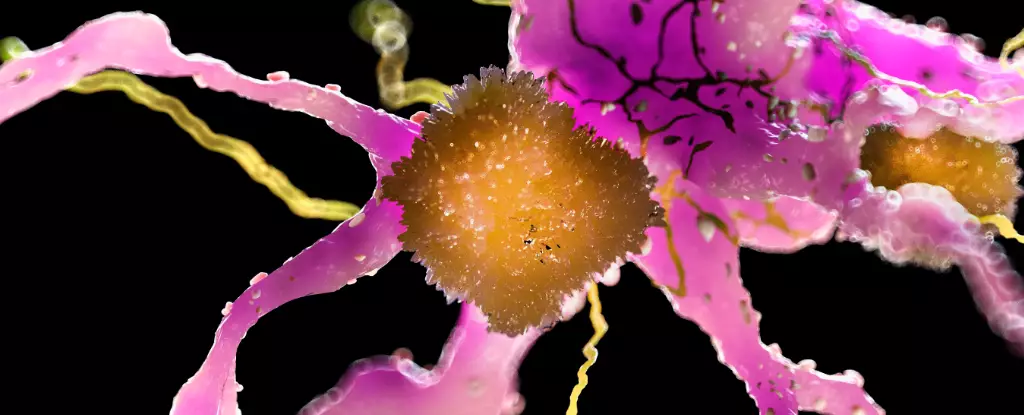The relentless progression of Alzheimer’s disease has long posed a significant challenge, both for those diagnosed and their families. However, recent findings from a groundbreaking study at Washington University provide an invigorating glimpse into potential strategies for not only slowing the disease in those afflicted but also delaying its onset in individuals genetically predisposed to it. The lead investigator, Randall J. Bateman, expresses a profound sense of optimism regarding these developments, suggesting that the research may pave the way for future preventative measures benefiting millions at risk of this debilitating condition.
Understanding the Genetic Landscape
At the heart of this conversation lies the genetic component of Alzheimer’s, particularly in cases attributed to Dominantly Inherited Alzheimer’s Disease (DIAD), which arises from specific genetic mutations. Although these mutations account for a mere 1% of all Alzheimer’s cases, they are a harbinger of certainty, with individuals often showing symptoms by their 50s. This research identifies a crucial demographic: those who exist on the cusp of cognitive decline, offering a new lease on life if preventative measures can be successfully implemented.
The initial phase of the study launched in 2012 aimed to investigate the efficacy of a therapy that harnesses two lineages of antibodies in curbing disease progression among participants with nominal cognitive issues. Although the phase 3 clinical trials failed to yield statistically significant symptomatic relief, researchers found that one of the therapeutic agents, gantenerumab, demonstrated notable advancements in altering the underlying pathology associated with the disease.
Promising Results Offsetting Initial Failures
In an unexpected turn of events, the trajectory of the trial didn’t end with failure; it pivoted toward another compelling narrative. Despite the early halting of the trial due to unmet goals, additional analysis revealed that participants who continued to receive gantenerumab, regardless of their prior group assignments, exhibited a significantly reduced risk—an impressive cut in half—of developing clinical symptoms. The implications are staggering, as they not only suggest a possible delay in the onset of Alzheimer’s but reignite hope for innovative, life-altering treatments.
Bateman underscores the monumental significance of this outcome, asserting that within a cohort destined to experience cognitive decline, some participants have managed to defy the odds. This newfound breakthrough is not merely about preserving cognitive function for a few extra years; it speaks to the fundamental desire to enhance the quality of life as one ages.
Mitigating Risks Amidst Promising Advances
While the excitement surrounding gantenerumab and similar treatments is warranted, it is crucial to remain vigilant about the potential risks associated with these therapies. The occasional incidents of tiny brain bleeds and swellings, albeit rare, prompt a necessary discourse on safety and long-term effects. Such concerns exemplify the delicate balance between pioneering medical advancements and ensuring patient safety.
Despite these risks, the pursuit of next-generation anti-amyloid treatments continues to gain traction. With recent approvals in the United States for therapies catering specifically to symptomatic individuals, the medical community is inching closer to finding a panacea for cognitive decline. As the field continues to evolve, promises of improved cognition for those diagnosed with Alzheimer’s ignite both hope and excitement.
Looking Towards a Future of Empowerment
As we contemplate the future of Alzheimer’s prevention and treatment, the implications of this research resonate far beyond the scientific realm. The ability to potentially delay or even prevent the onset of cognitive decline offers an empowering narrative for those with a familial history of the disease. The possibility of engaging in proactive health measures and accessing cutting-edge treatment options fosters a sense of agency and hope.
Admittedly, more extensive research and longitudinal studies will be needed to assess the long-term efficacy of such treatments, but the current findings illuminate a pathway that once seemed elusive. They challenge the prevailing narrative surrounding Alzheimer’s as an inescapable fate, instead positioning it as a manageable concern, ripe for intervention. The journey towards effective prevention continues, buoyed by each new revelation that enhances our understanding of this complex disease. The future holds immense promise for not only science but for humanity’s enduring fight against the ravages of Alzheimer’s disease.

